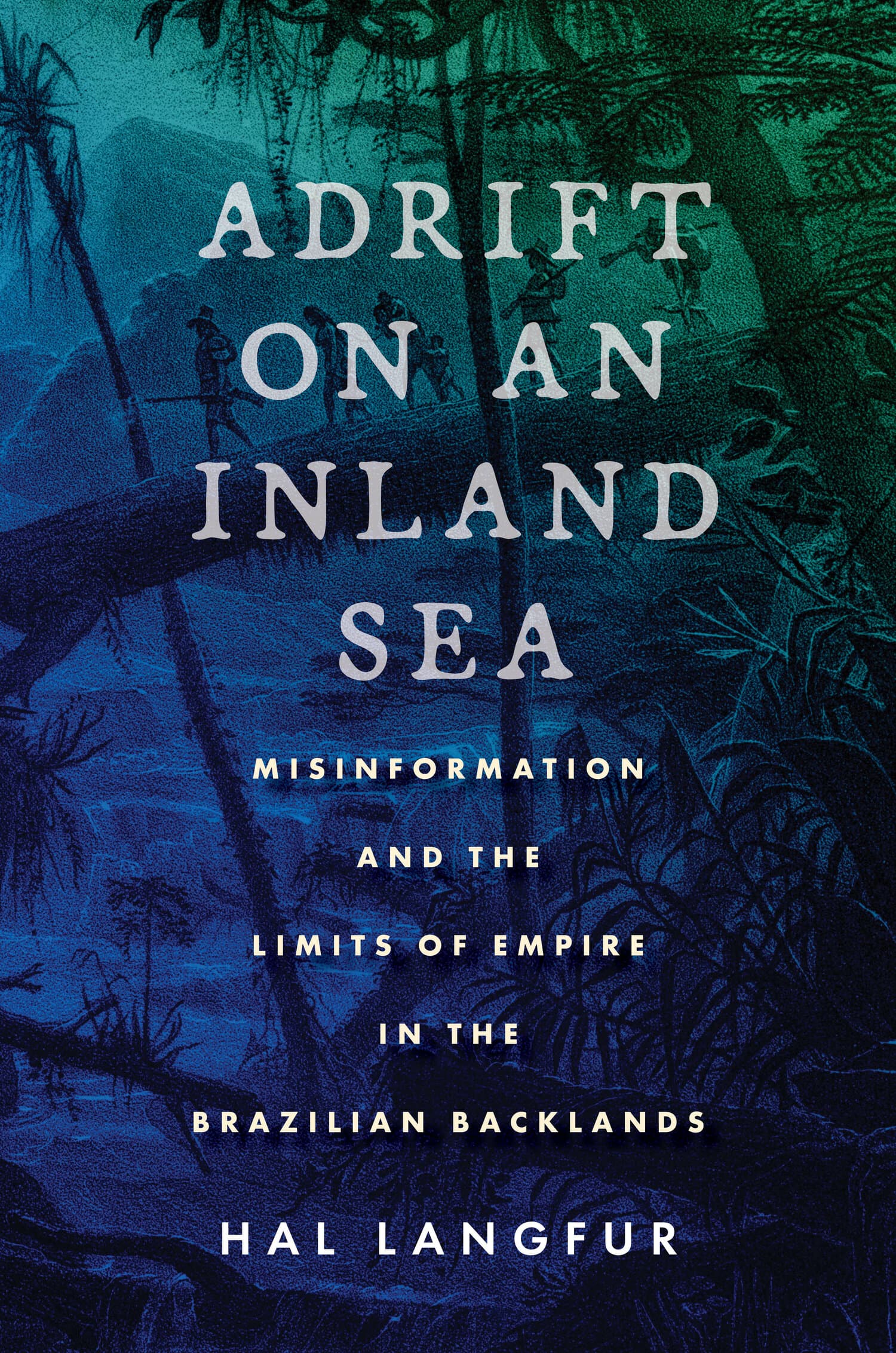Adrift on an Inland Sea
Award Winner
2024: Warren Dean Memorial Prize
Winner of the 2024 Warren Dean Memorial Prize, sponsored by the Conference on Latin American History (CLAH).2024: Erminie Wheeler-Voegelin Prize
Honorable Mention for the 2024 Erminie Wheeler-Voegelin Prize, sponsored by the American Society for Ethnohistory.2024: Sérgio Buarque de Holanda Prize
Winner of the 2024 Sérgio Buarque de Holanda Prize for Best Book in Social Sciences, sponsored by the Latin American Studies Association (LASA), Brazil Section.

From 1750 until Brazil won its independence in 1822, the Portuguese crown sought to extend imperial control over the colony's immense, sea-like interior and exploit its gold and diamond deposits using enslaved labor. Carrying orders from Lisbon into the Brazilian backlands, elite vassals, soldiers, and scientific experts charged with exploring multiple frontier zones and establishing royal authority conducted themselves in ways that proved difficult for the crown to regulate. The overland expeditions they mounted in turn encountered actors operating beyond the state's purview: seminomadic Native peoples, runaway slaves, itinerant poor, and those deemed criminals, who eluded, defied, and reshaped imperial ambitions.
This book measures Portugal's transatlantic projection of power against a particular obstacle: imperial information-gathering, which produced a confusion of rumors, distortions, claims, conflicting reports, and disputed facts. Drawing on interdisciplinary scholarship in the fields of ethnohistory, slavery and diaspora studies, and legal and literary history, Hal Langfur considers how misinformation destabilized European sovereignty in the Americas, making a major contribution to histories of empire, frontiers and borderlands, knowledge production, and scientific exploration in the eighteenth and nineteenth centuries.
"Adrift on an Inland Sea is a beautifully narrated history of late eighteenth- and early nineteenth-century Brazil that reveals its hinterlands as crucial sites for imperial and national projects. Tracing information gathering as mediated by state agents, settlers, and Indigenous and African-descended peoples, Hal Langfur offers an innovative account of Brazilian territorialization and state power."—Kirsten Schultz, Seton Hall University
"[A]s Langfur demonstrates so well, it was easy enough for crafty individuals to confound officials in Portugal, allowing some to accumulate vast personal wealth (especially in land holdings), while the crown was unable to intervene. He suggests that such deceptions occurred in proportion to the desire of the Portuguese to exert increased control over their colony as the 18th century waned. Seemingly, not even scientists could be counted on for truthful reporting. It is hard to say whether this captaincy's experience extends to all of colonial Brazil. Regardless, for Minas Gerais, the author's effort is solid and provocative. Highly recommended."—R. M. Delson, CHOICE
"Clearly written, broadly framed, evocative, and at times amusing, [Adrift on an Inland Sea] is likely to appeal broadly to undergraduate and graduate students and historians of borderlands, empire, ethnohistory, Brazil, and the Atlantic world."—Judy Bieber, Hispanic American Historical Review
"Hal Langfur's Adrift on an Inland Sea: Misinformation and the Limits of Empire in the Brazilian Backlands sheds valuable light on spaces and processes in the history of colonial Brazil that have been overlooked and understudied, namely those taking place in internal frontier zones—the sertões, or backlands, between and beyond the enclaves governed by Portuguese rule, unstable and unincorporated spaces that were socially and culturally discontiguous."—Adriana Johnson, H-Environment
"Adrift on an Inland Sea is written in elegant prose, well-argued, and a superbly researched monograph that will undoubtedly become a mandatory reading for scholars of frontiers and borderlands of the Americas, Atlantic empires, Brazil, and history of science and knowledge production."—Fabricio Prado, Colonial Latin American Review
"Historical geographers will appreciate how Langfur reads archival materials in ways that question expedition leaders and draw attention to the informants and interlocutors who previously had been erased from the official expedition reports. The fact that the book is engaging and compelling as a narrative is yet another excellent characteristic of this significant contribution to Brazilian geography and history."—Christian Brannstrom, Journal of Latin American Geography
"This book is an essential read for specialists in Brazilian history, where its themes resonate with contemporary problems of disorderly illegal mining and Native dispossession, as the author himself observes, and for scholars of Colonial Latin America more broadly. It also holds significant value for those studying imperial rule in other contexts, particularly researchers interested in borderlands and the processes of knowledge-gathering in colonial settings. Scholars of North American in particular, who often approach such question from a narrower geographical perspective, would greatly benefit from engaging with Langfur's analysis to place the dynamics expansion into the native American West within a wider comparative framework."—Thiago Krause, Ler História




